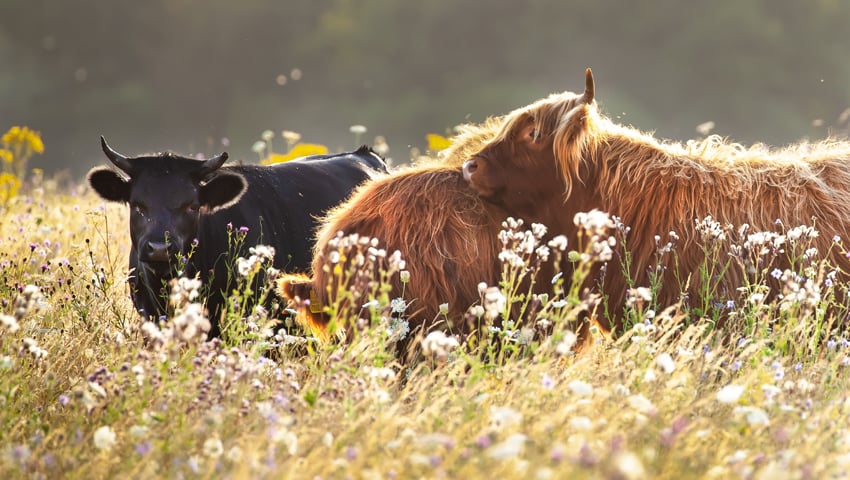ONE third of the global terrestrial carbon stock is stored in grasslands. A new global study implies that this stock may decrease as plant biodiversity is reduced, especially in warm and arid areas. The reason is that a species-poor vegetation seems to decompose faster in the soil. The study was led by Marie Spohn from the Swedish University of Agricultural Sciences.
Based on data from 84 grasslands spread over a total of six continents, Marie Spohn and 29 other researchers from all over the world, have significantly increased the understanding of how carbon storage in grasslands functions and relates to biodiversity and climate. Steppes in North America, the savannah in Serengeti, tundra in Svalbard and natural pastures in the Alps are examples of ecosystems that are included in the study.
The results, published in the scientific journal Nature Communications, show that the soil carbon content increases with plant diversity in global grasslands, and that this relationship is particularly strong in warm and arid climates. The reason was not that species-rich grasslands produced more aboveground plant biomass, which the researchers had expected. Instead, the explanation is that there is a relationship between species richness and the chemical composition of the vegetation: On species-rich grasslands, the plant biomass generally contained less nitrogen in relation to the amount of carbon, i.e. a higher carbon-to-nitrogen ratio. This implies that the plants contain less protein in relation to the amount of fibres – and such plant material is decomposed more slowly in the soil.
A slower decomposition of plant parts in species-rich grasslands thus seems to be the reason why more carbon is stored in the soil in these environments. The fact that this trend is particularly strong in dry and hot climates may have several reasons. One is that plants at warm and arid sites produce more compounds that are complex and decomposes slowly, as protection against desiccation and solar radiation.
Previously, it was believed that soil carbon storage is mostly related to the quantity of plant biomass inputs to soil, but this study shows that it also depends on the quality of the organic matter.
“The study has far-reaching implications as it suggests that ecosystem management that restores plant diversity likely enhances soil carbon sequestration, particularly in warm and arid climates”, says Marie Spohn.
Read the paper: The positive effect of plant diversity on soil carbon depends on climate
